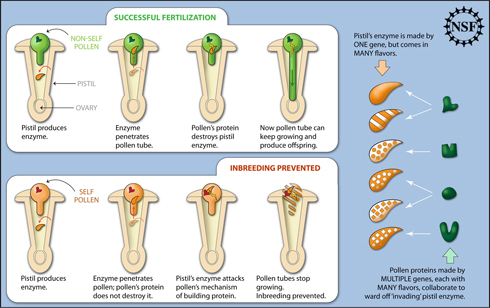New Details on the Molecular Machinery of Cancer
Berkeley Lab Researchers Resolve EGFR Activation Mystery
Researchers with Lawrence Berkeley National Laboratory (Berkeley Lab) and the University of California (UC) Berkeley have provided important new details into the activation of the epidermal growth factor receptor (EGFR), a cell surface protein that has been strongly linked to a large number of cancers and is a major target of cancer therapies.
“The more we understand about EGFR and the complex molecular machinery involved in the growth and proliferation of cells, the closer we will be to developing new and more effective ways to cure and treat the many different forms of cancer,” says chemist Jay Groves, one of the leaders of this research. “Through a tour-de-force of quantitative biology techniques that included cutting edge time-resolved fluorescence spectroscopy in living cells, Nuclear Magnetic Resonance, and computational modeling, we’ve determined definitively how EGFR becomes activated through to its epidermal growth factor (EGF) ligand.” (more…)

